Childhood Thoughts Quotes & Sayings
Enjoy reading and share 53 famous quotes about Childhood Thoughts with everyone.
Top Childhood Thoughts Quotes
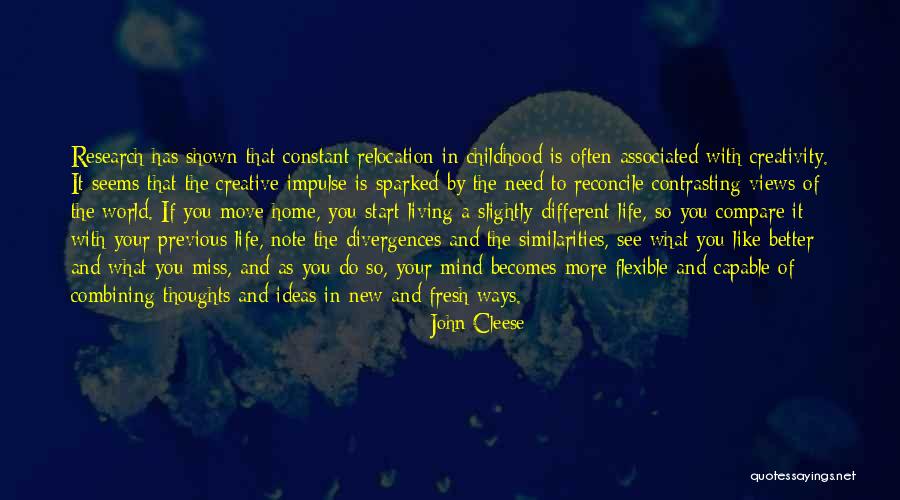
Research has shown that constant relocation in childhood is often associated with creativity. It seems that the creative impulse is sparked by the need to reconcile contrasting views of the world. If you move home, you start living a slightly different life, so you compare it with your previous life, note the divergences and the similarities, see what you like better and what you miss, and as you do so, your mind becomes more flexible and capable of combining thoughts and ideas in new and fresh ways. — John Cleese
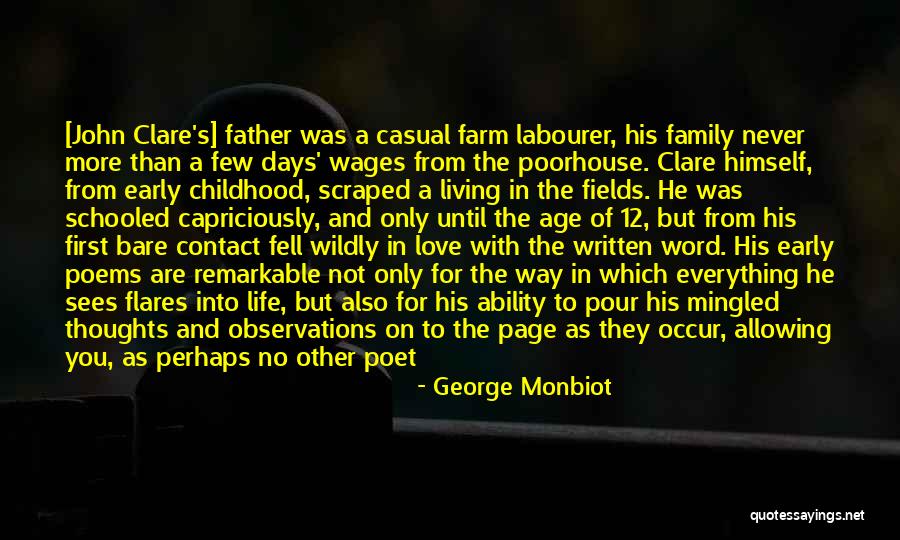
[John Clare's] father was a casual farm labourer, his family never more than a few days' wages from the poorhouse. Clare himself, from early childhood, scraped a living in the fields. He was schooled capriciously, and only until the age of 12, but from his first bare contact fell wildly in love with the written word. His early poems are remarkable not only for the way in which everything he sees flares into life, but also for his ability to pour his mingled thoughts and observations on to the page as they occur, allowing you, as perhaps no other poet has done, to watch the world from inside his head. Read The Nightingale's Nest, one of the finest poems in the English language, and you will see what I mean.
("John Clare, poet of the environmental crisis 200 years ago" in The Guardian.) — George Monbiot
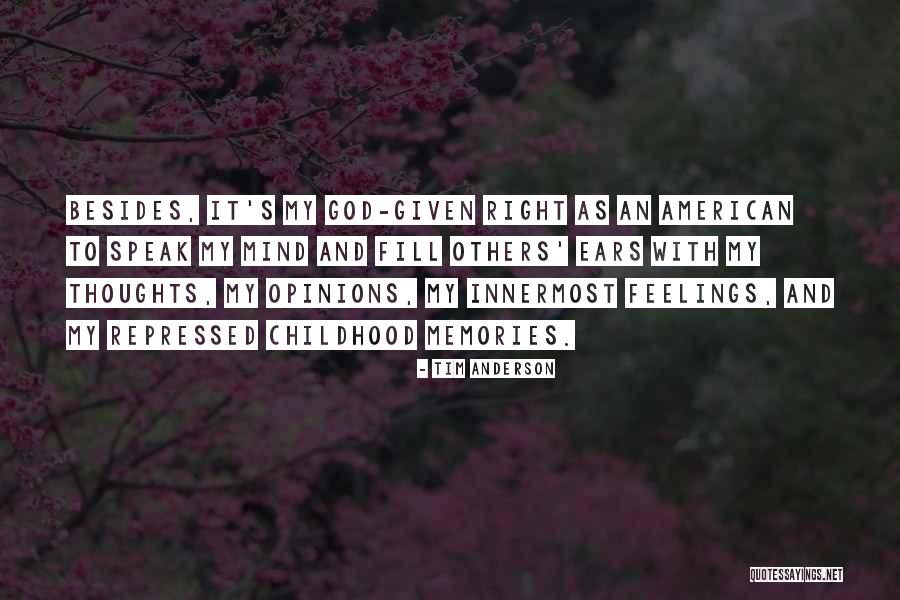
Besides, it's my God-given right as an American to speak my mind and fill others' ears with my thoughts, my opinions, my innermost feelings, and my repressed childhood memories. — Tim Anderson
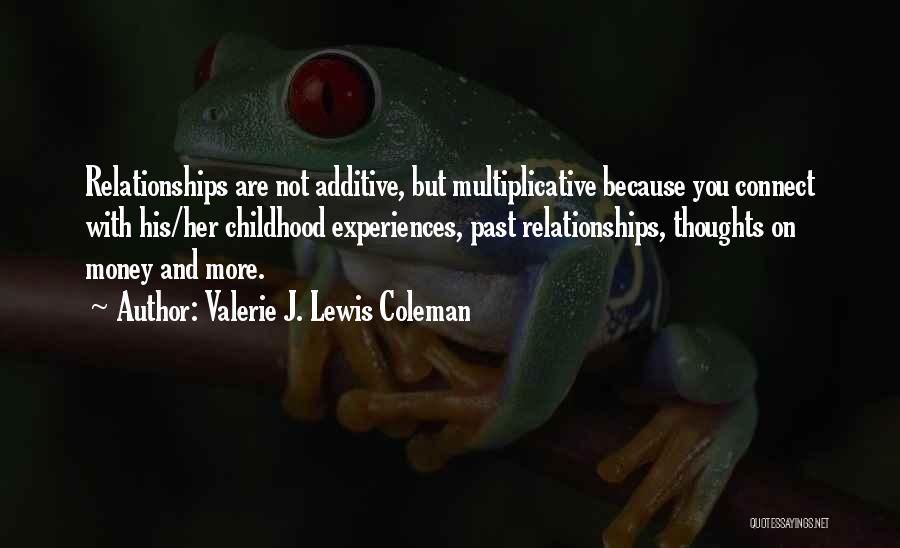
Relationships are not additive, but multiplicative because you connect with his/her childhood experiences, past relationships, thoughts on money and more. — Valerie J. Lewis Coleman
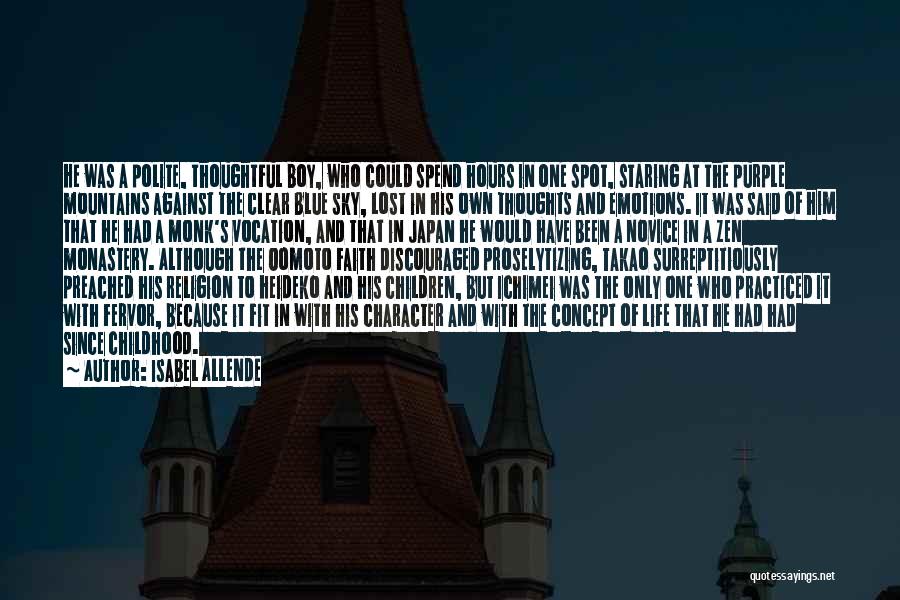
He was a polite, thoughtful boy, who could spend hours in one spot, staring at the purple mountains against the clear blue sky, lost in his own thoughts and emotions. It was said of him that he had a monk's vocation, and that in Japan he would have been a novice in a Zen monastery. Although the Oomoto faith discouraged proselytizing, Takao surreptitiously preached his religion to Heideko and his children, but Ichimei was the only one who practiced it with fervor, because it fit in with his character and with the concept of life that he had had since childhood. — Isabel Allende
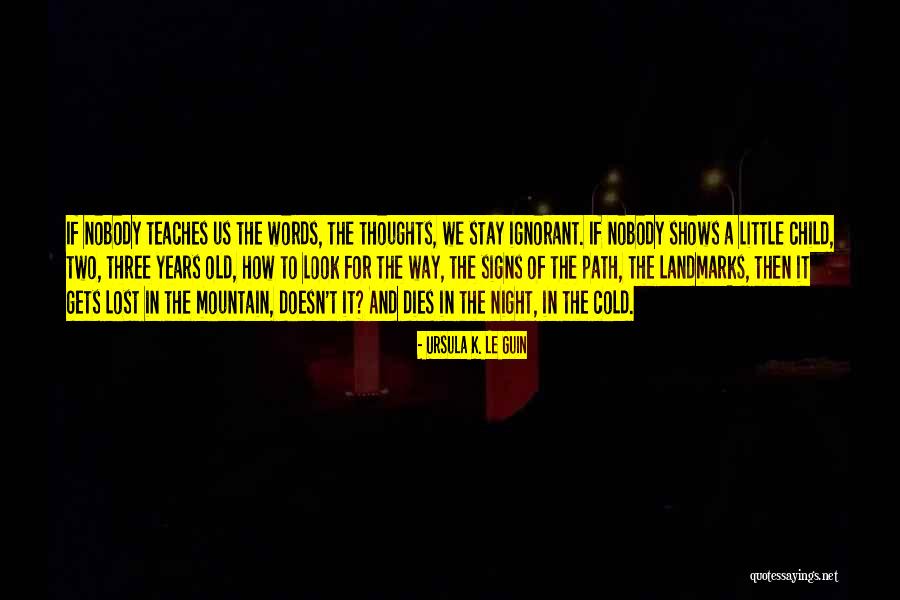
If nobody teaches us the words, the thoughts, we stay ignorant. If nobody shows a little child, two, three years old, how to look for the way, the signs of the path, the landmarks, then it gets lost in the mountain, doesn't it? And dies in the night, in the cold. — Ursula K. Le Guin
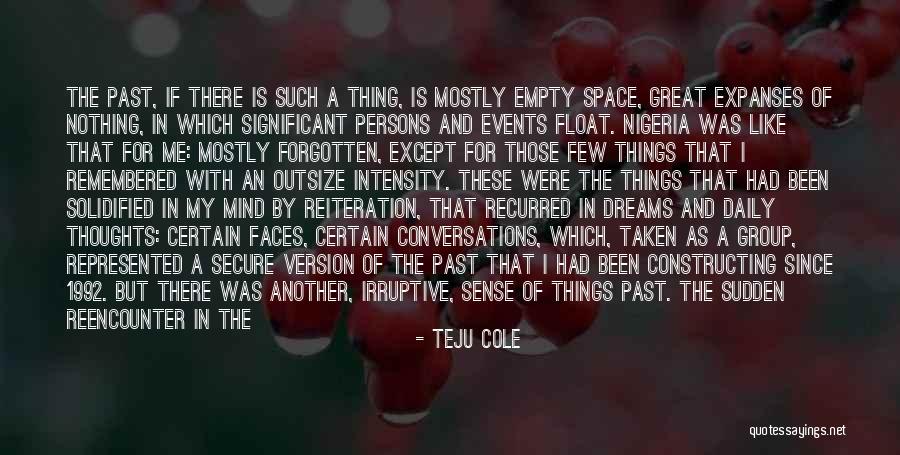
The past, if there is such a thing, is mostly empty space, great expanses of nothing, in which significant persons and events float. Nigeria was like that for me: mostly forgotten, except for those few things that I remembered with an outsize intensity. These were the things that had been solidified in my mind by reiteration, that recurred in dreams and daily thoughts: certain faces, certain conversations, which, taken as a group, represented a secure version of the past that I had been constructing since 1992. But there was another, irruptive, sense of things past. The sudden reencounter in the present, of something or someone long forgotten, some part of myself I had relegated to childhood and to Africa. — Teju Cole
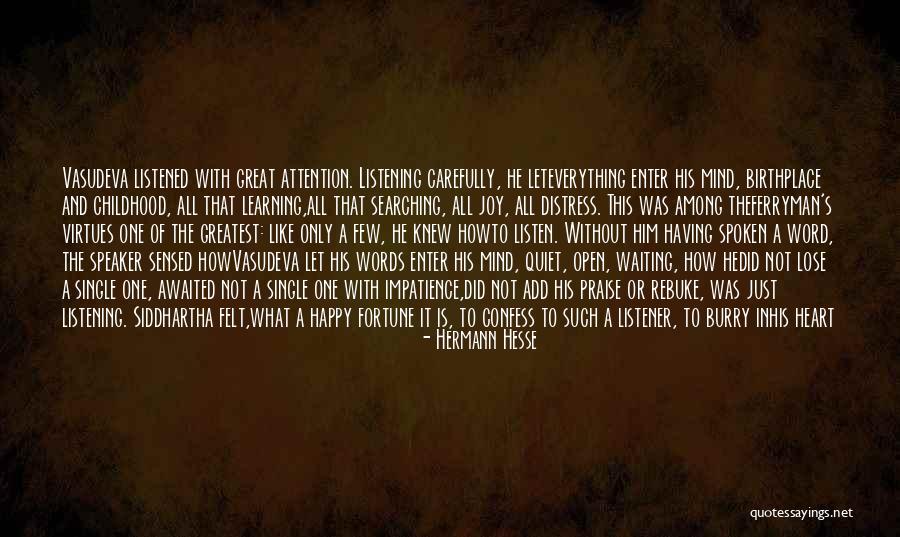
Vasudeva listened with great attention. Listening carefully, he let
everything enter his mind, birthplace and childhood, all that learning,
all that searching, all joy, all distress. This was among the
ferryman's virtues one of the greatest: like only a few, he knew how
to listen. Without him having spoken a word, the speaker sensed how
Vasudeva let his words enter his mind, quiet, open, waiting, how he
did not lose a single one, awaited not a single one with impatience,
did not add his praise or rebuke, was just listening. Siddhartha felt,
what a happy fortune it is, to confess to such a listener, to burry in
his heart his own life, his own search, his own suffering. — Hermann Hesse
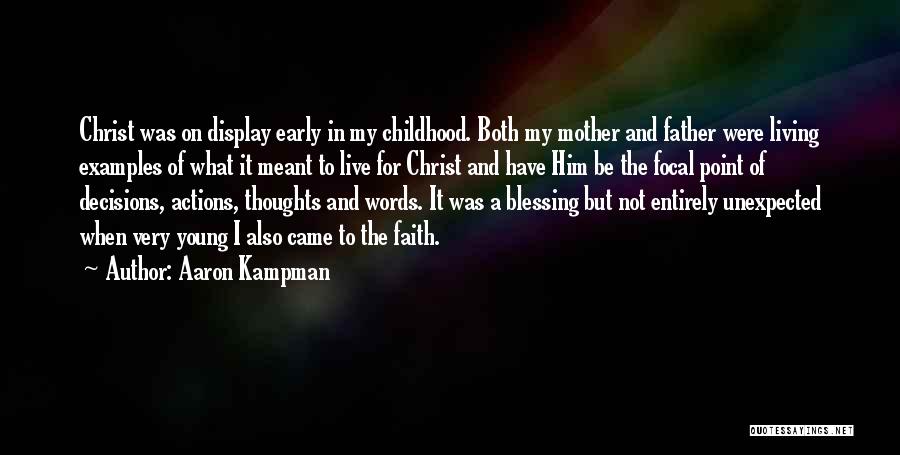
Christ was on display early in my childhood. Both my mother and father were living examples of what it meant to live for Christ and have Him be the focal point of decisions, actions, thoughts and words. It was a blessing but not entirely unexpected when very young I also came to the faith. — Aaron Kampman
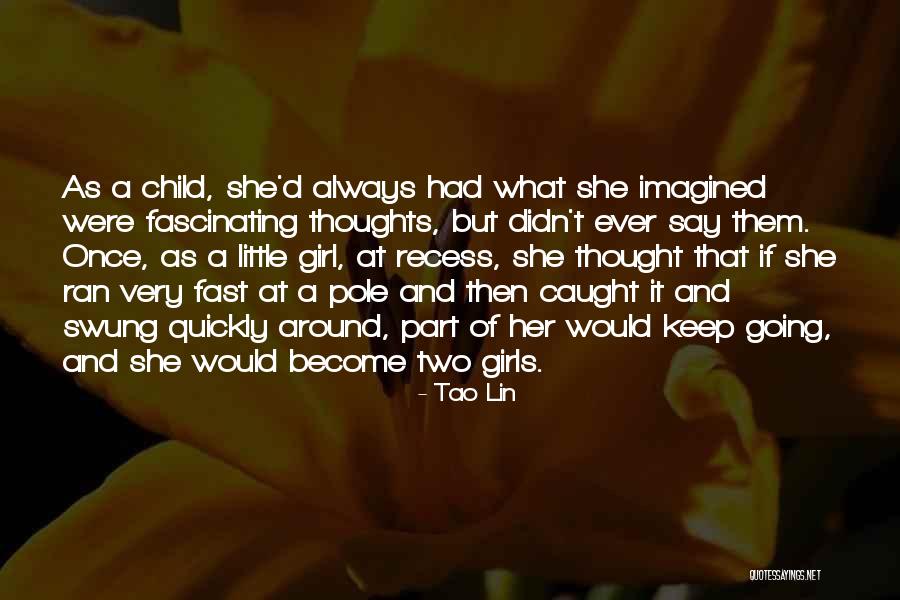
As a child, she'd always had what she imagined were fascinating thoughts, but didn't ever say them. Once, as a little girl, at recess, she thought that if she ran very fast at a pole and then caught it and swung quickly around, part of her would keep going, and she would become two girls. — Tao Lin
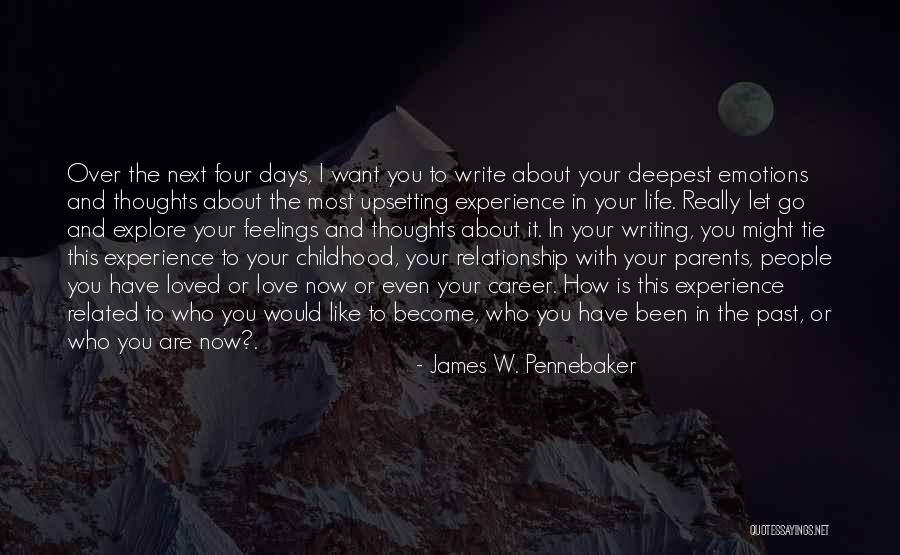
Over the next four days, I want you to write about your deepest emotions and thoughts about the most upsetting experience in your life. Really let go and explore your feelings and thoughts about it. In your writing, you might tie this experience to your childhood, your relationship with your parents, people you have loved or love now or even your career. How is this experience related to who you would like to become, who you have been in the past, or who you are now?. — James W. Pennebaker
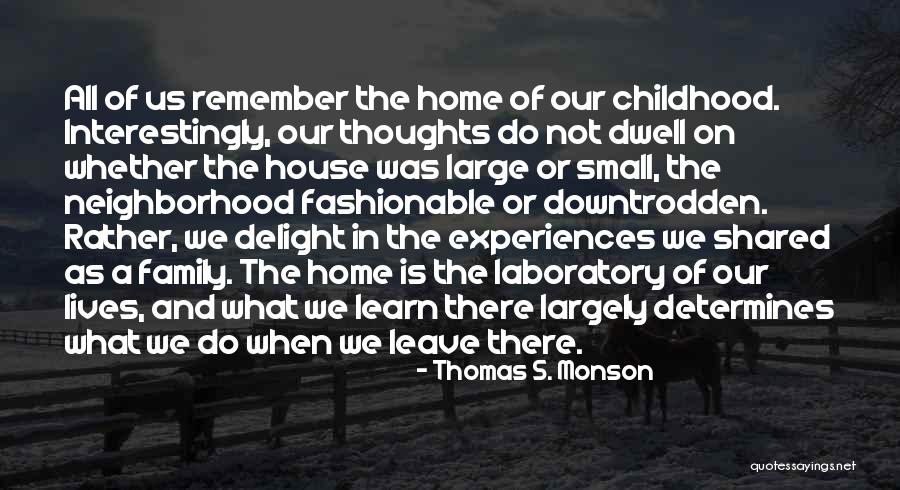
All of us remember the home of our childhood. Interestingly, our thoughts do not dwell on whether the house was large or small, the neighborhood fashionable or downtrodden. Rather, we delight in the experiences we shared as a family. The home is the laboratory of our lives, and what we learn there largely determines what we do when we leave there. — Thomas S. Monson
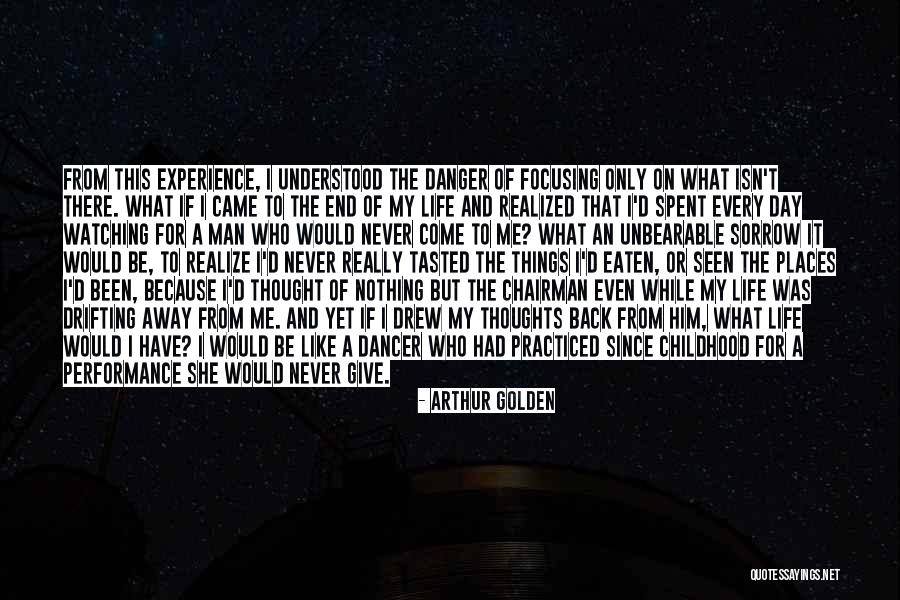
From this experience, I understood the danger of focusing only on what isn't there. What if I came to the end of my life and realized that I'd spent every day watching for a man who would never come to me? What an unbearable sorrow it would be, to realize I'd never really tasted the things I'd eaten, or seen the places I'd been, because I'd thought of nothing but the Chairman even while my life was drifting away from me. And yet if I drew my thoughts back from him, what life would I have? I would be like a dancer who had practiced since childhood for a performance she would never give. — Arthur Golden
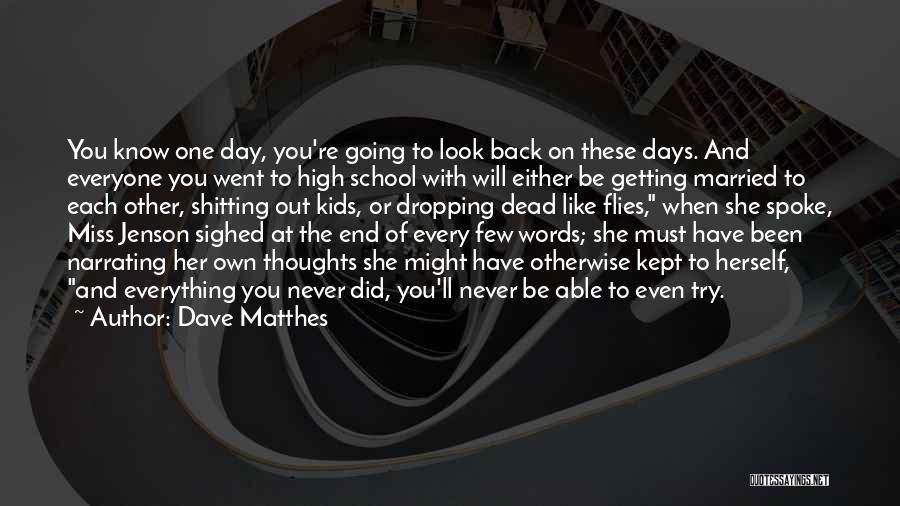
You know one day, you're going to look back on these days. And everyone you went to high school with will either be getting married to each other, shitting out kids, or dropping dead like flies," when she spoke, Miss Jenson sighed at the end of every few words; she must have been narrating her own thoughts she might have otherwise kept to herself, "and everything you never did, you'll never be able to even try. — Dave Matthes
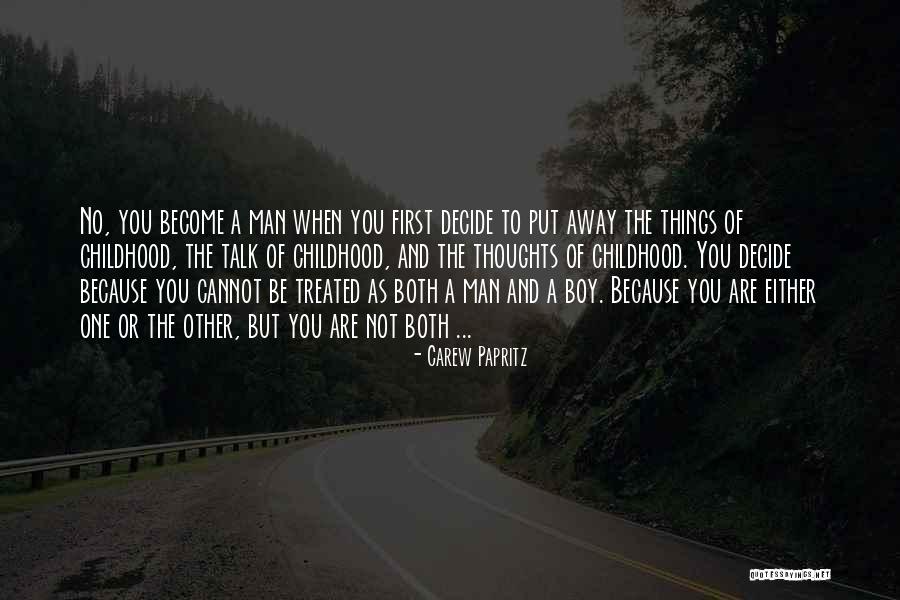
No, you become a man when you first decide to put away the things of childhood, the talk of childhood, and the thoughts of childhood. You decide because you cannot be treated as both a man and a boy. Because you are either one or the other, but you are not both ... — Carew Papritz
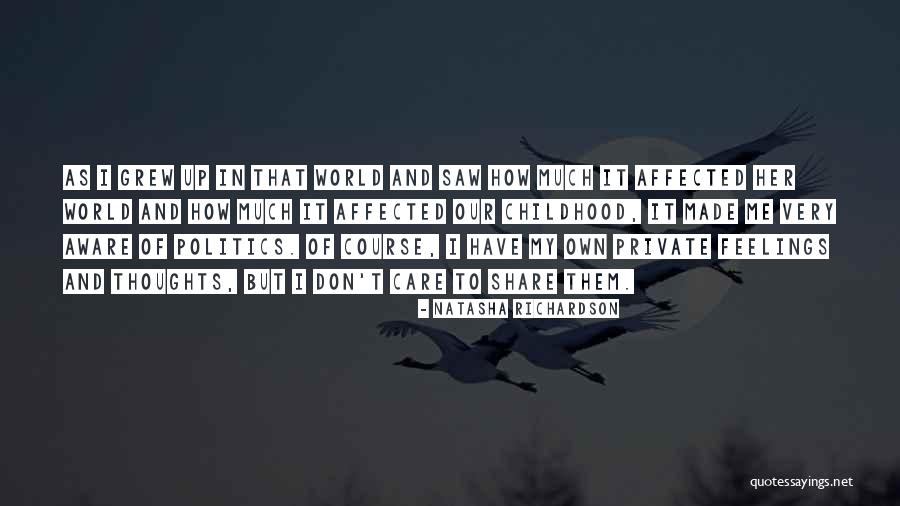
As I grew up in that world and saw how much it affected her world and how much it affected our childhood, it made me very aware of politics. Of course, I have my own private feelings and thoughts, but I don't care to share them. — Natasha Richardson
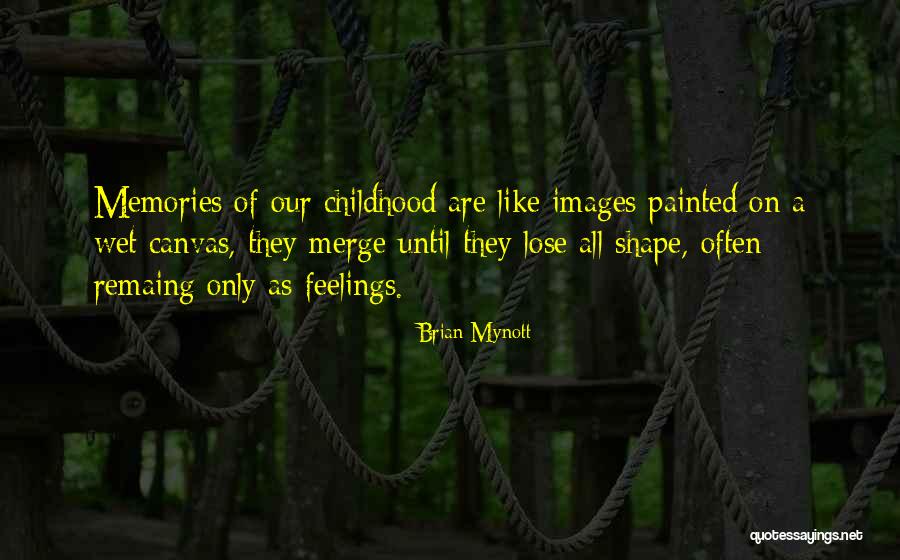
Memories of our childhood are like images painted on a wet canvas, they merge until they lose all shape, often remaing only as feelings. — Brian Mynott
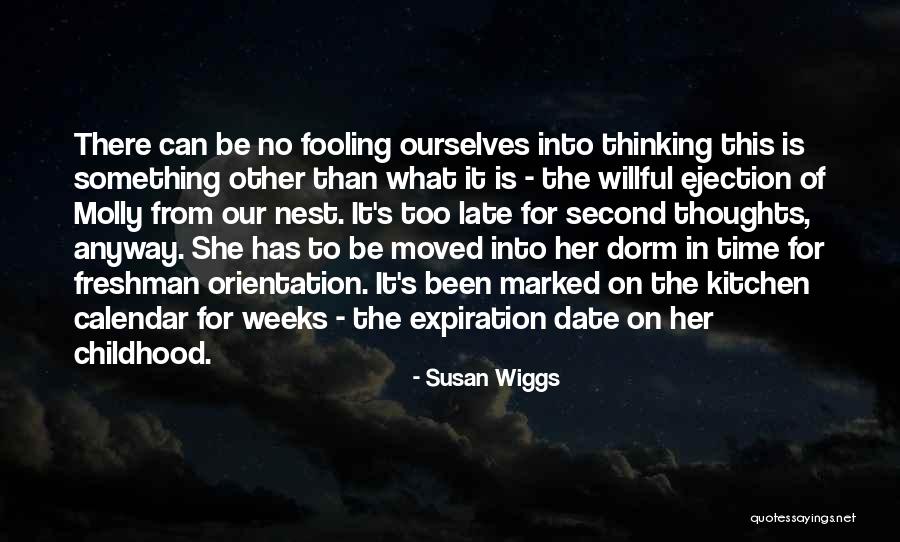
There can be no fooling ourselves into thinking this is something other than what it is - the willful ejection of Molly from our nest. It's too late for second thoughts, anyway. She has to be moved into her dorm in time for freshman orientation. It's been marked on the kitchen calendar for weeks - the expiration date on her childhood. — Susan Wiggs
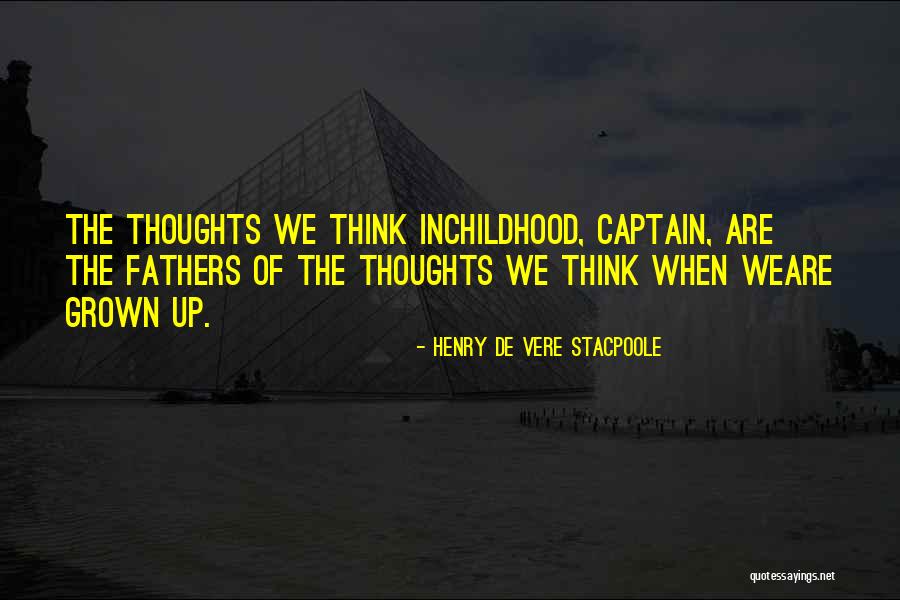
The thoughts we think in
childhood, Captain, are the fathers of the thoughts we think when we
are grown up. — Henry De Vere Stacpoole
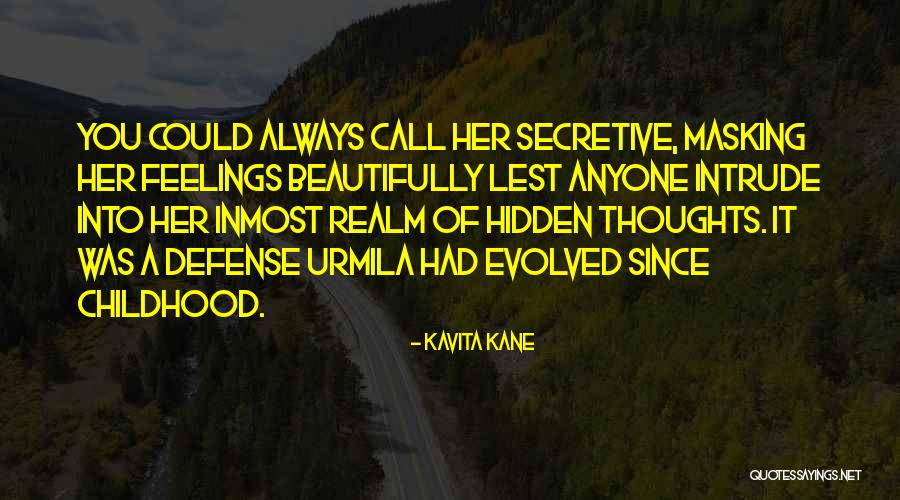
You could always call her secretive, masking her feelings beautifully lest anyone intrude into her inmost realm of hidden thoughts. It was a defense Urmila had evolved since childhood. — Kavita Kane
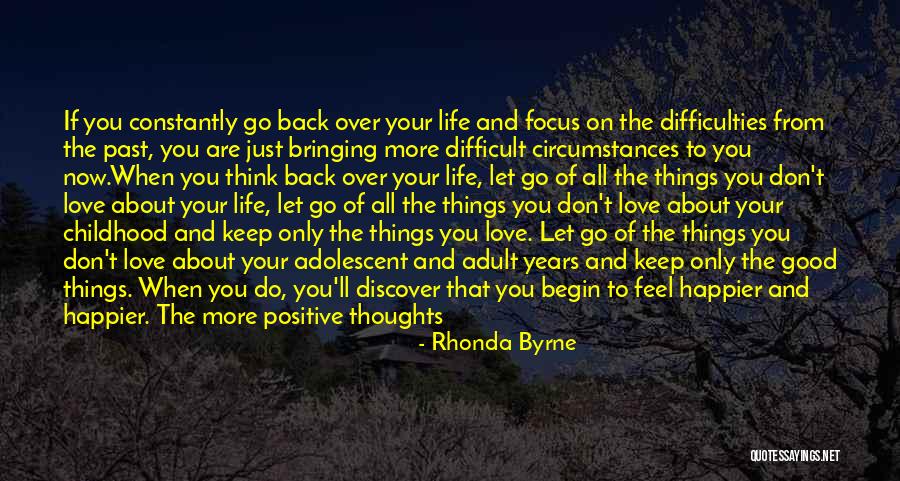
If you constantly go back over your life and focus on the difficulties from the past, you are just bringing more difficult circumstances to you now.
When you think back over your life, let go of all the things you don't love about your life, let go of all the things you don't love about your childhood and keep only the things you love. Let go of the things you don't love about your adolescent and adult years and keep only the good things. When you do, you'll discover that you begin to feel happier and happier.
The more positive thoughts you entertain, the more you notice the things that you love and that make you feel good, and the happier you become.
Like attracts like, and when you're happy, you attract happy people, circumstances, and events into your life. This is how your life changes - one happy thought at a time! — Rhonda Byrne
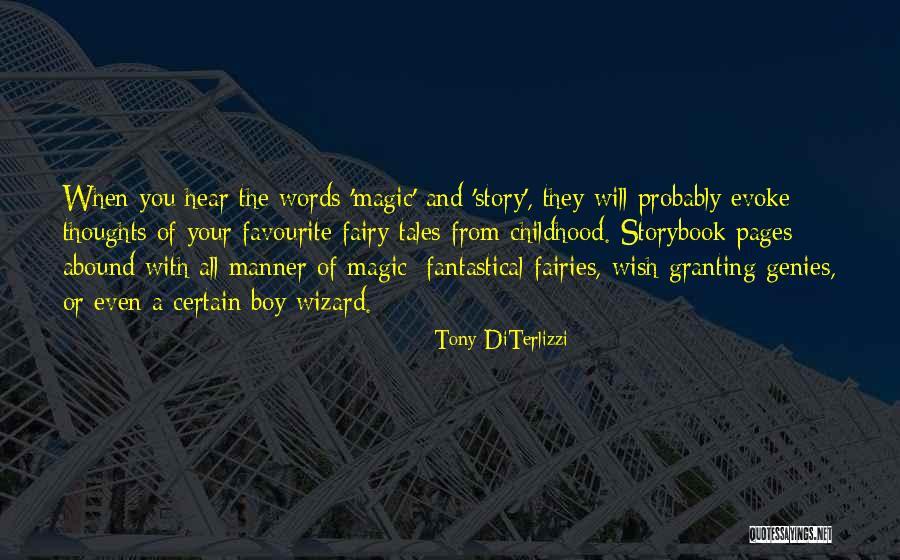
When you hear the words 'magic' and 'story', they will probably evoke thoughts of your favourite fairy tales from childhood. Storybook pages abound with all manner of magic: fantastical fairies, wish-granting genies, or even a certain boy wizard. — Tony DiTerlizzi
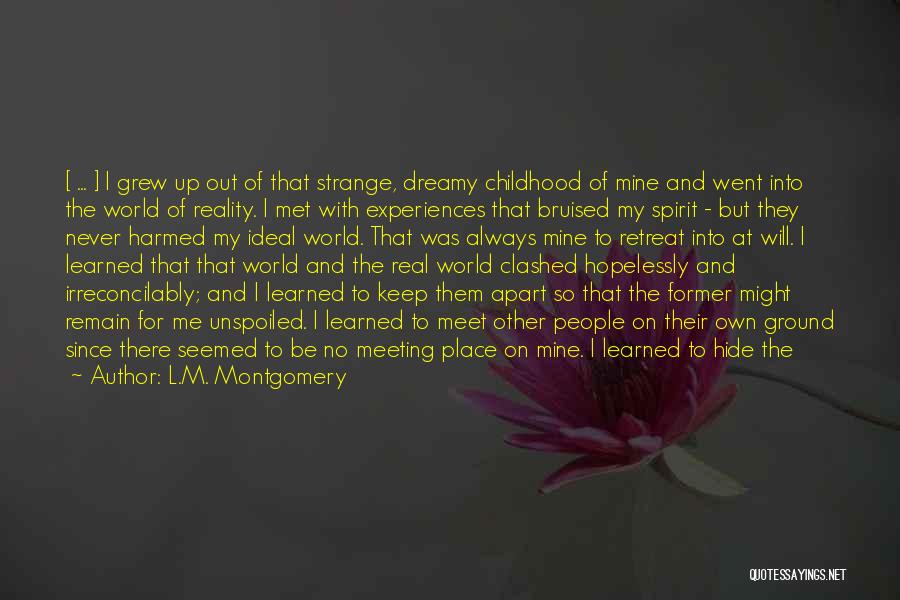
[ ... ] I grew up out of that strange, dreamy childhood of mine and went into the world of reality. I met with experiences that bruised my spirit - but they never harmed my ideal world. That was always mine to retreat into at will. I learned that that world and the real world clashed hopelessly and irreconcilably; and I learned to keep them apart so that the former might remain for me unspoiled. I learned to meet other people on their own ground since there seemed to be no meeting place on mine. I learned to hide the thoughts and dreams and fancies that had no place in the strife and clash of the market place. I found that it was useless to look for kindred souls in the multitude; one might stumble on such here and there, but as a rule it seemed to me that the majority of people lived for the things of time and sense alone and could not understand my other life. So I piped and danced to other people's piping - and held fast to my own soul as best I could. — L.M. Montgomery
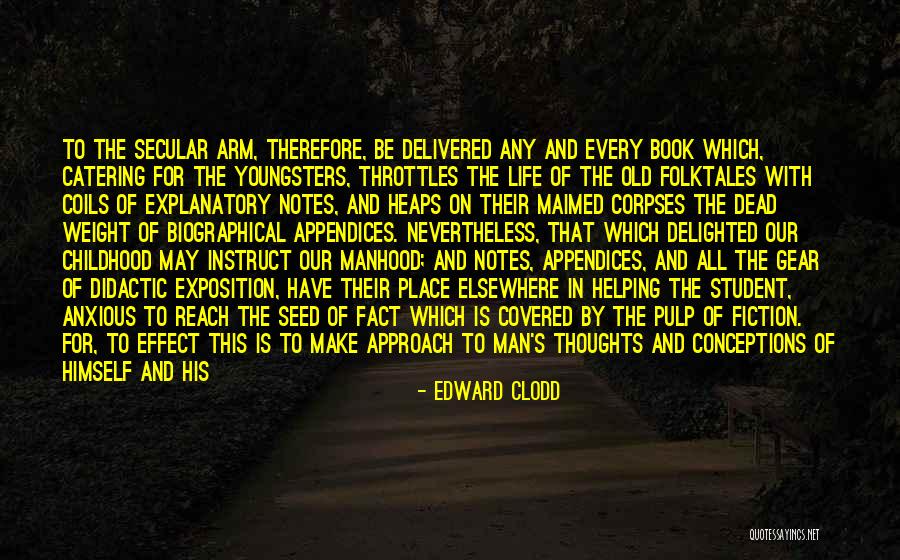
To the secular arm, therefore, be delivered any and every book which, catering for the youngsters, throttles the life of the old folktales with coils of explanatory notes, and heaps on their maimed corpses the dead weight of biographical appendices. Nevertheless, that which delighted our childhood may instruct our manhood; and notes, appendices, and all the gear of didactic exposition, have their place elsewhere in helping the student, anxious to reach the seed of fact which is covered by the pulp of fiction. For, to effect this is to make approach to man's thoughts and conceptions of himself and his surroundings, to his way of looking at things and to explanation of his conduct both in work and play. Hence the folk-tale and the game are alike pressed into the service of study of the human mind. Turn where we may, the pastimes of children are seen to mimic the serious pursuits of men. — Edward Clodd
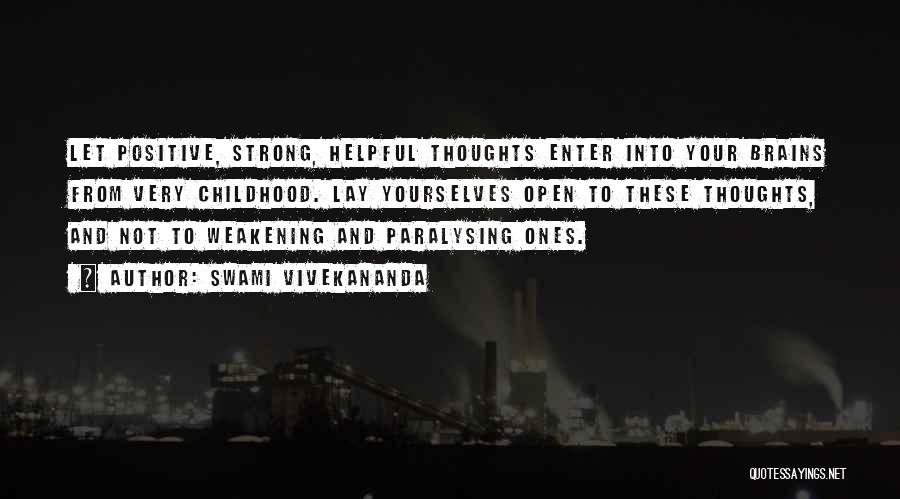
Let positive, strong, helpful thoughts enter into your brains from very childhood. Lay yourselves open to these thoughts, and not to weakening and paralysing ones. — Swami Vivekananda
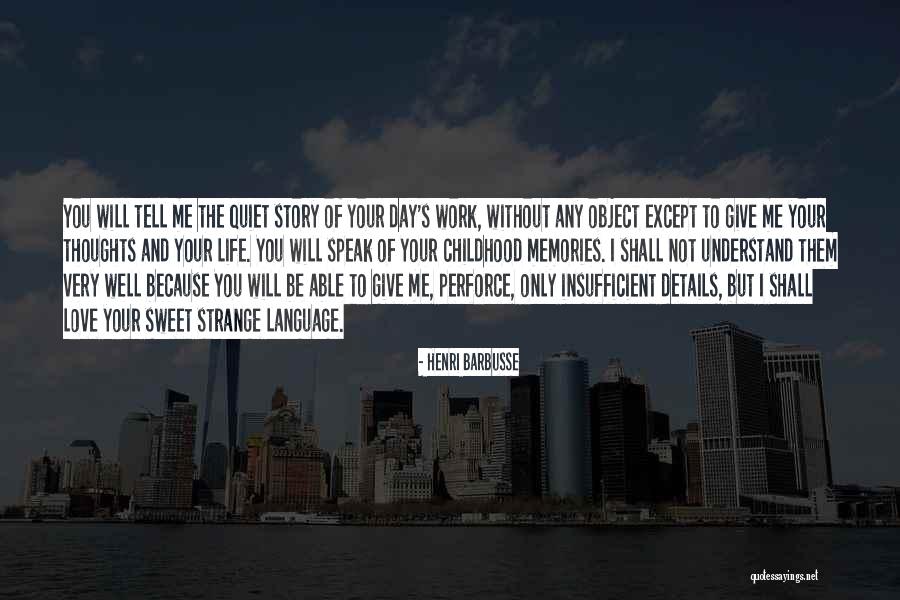
You will tell me the quiet story of your day's work, without any object except to give me your thoughts and your life. You will speak of your childhood memories. I shall not understand them very well because You will be able to give me, perforce, only insufficient details, but I shall love your sweet strange language. — Henri Barbusse
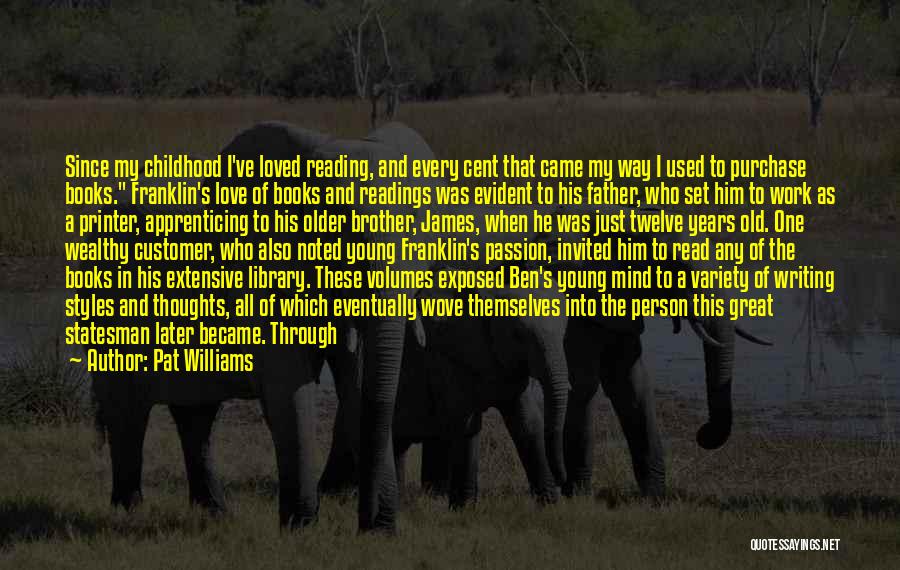
Since my childhood I've loved reading, and every cent that came my way I used to purchase books." Franklin's love of books and readings was evident to his father, who set him to work as a printer, apprenticing to his older brother, James, when he was just twelve years old. One wealthy customer, who also noted young Franklin's passion, invited him to read any of the books in his extensive library. These volumes exposed Ben's young mind to a variety of writing styles and thoughts, all of which eventually wove themselves into the person this great statesman later became. Through books, Franklin honed his writing skills, continually challenging himself to become better at what he was already good at. — Pat Williams
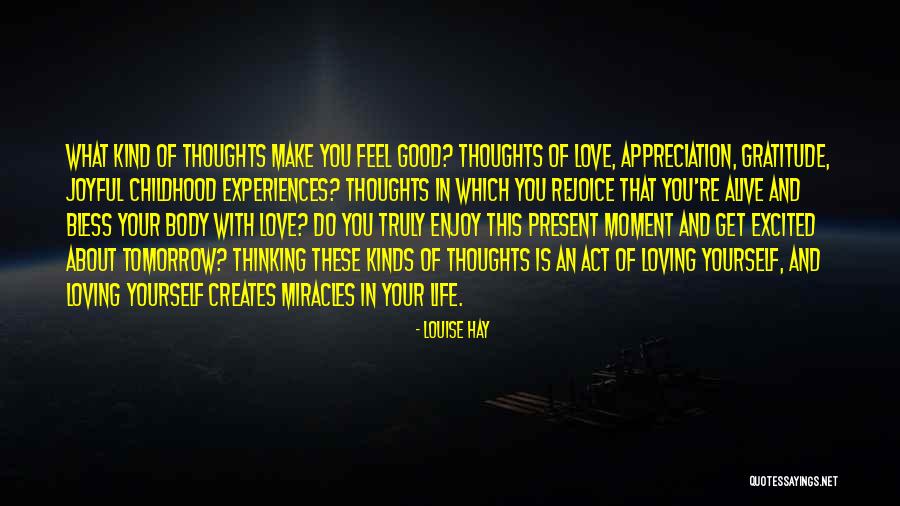
What kind of thoughts make you feel good? Thoughts of love, appreciation, gratitude, joyful childhood experiences? Thoughts in which you rejoice that you're alive and bless your body with love? Do you truly enjoy this present moment and get excited about tomorrow? Thinking these kinds of thoughts is an act of loving yourself, and loving yourself creates miracles in your life. — Louise Hay
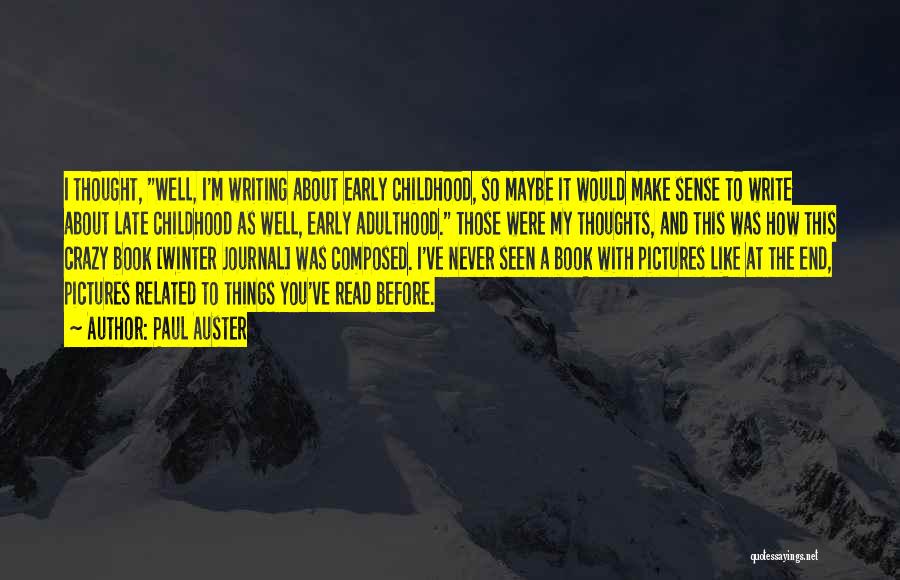
I thought, "Well, I'm writing about early childhood, so maybe it would make sense to write about late childhood as well, early adulthood." Those were my thoughts, and this was how this crazy book [Winter Journal] was composed. I've never seen a book with pictures like at the end, pictures related to things you've read before. — Paul Auster
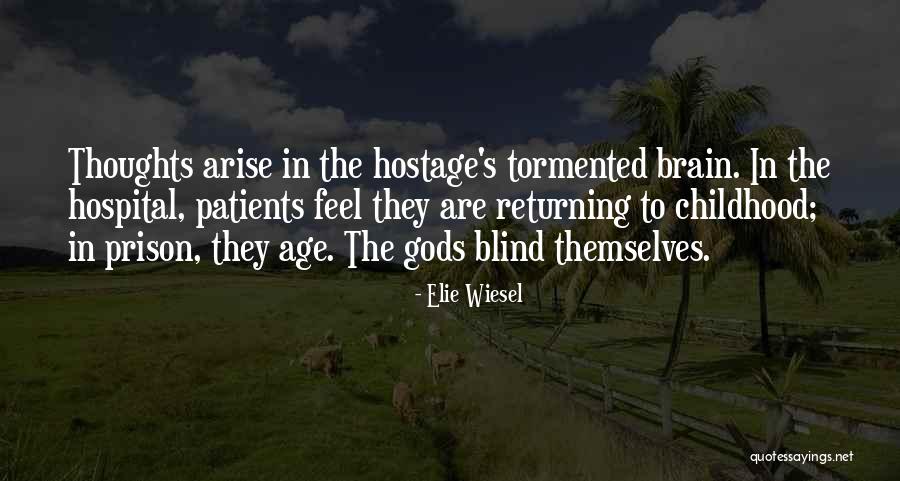
Thoughts arise in the hostage's tormented brain. In the hospital, patients feel they are returning to childhood; in prison, they age. The gods blind themselves. — Elie Wiesel
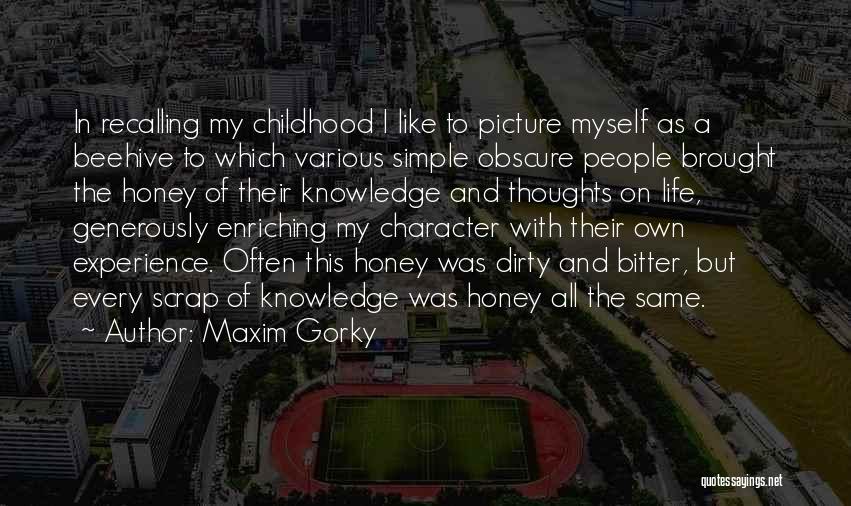
In recalling my childhood I like to picture myself as a beehive to which various simple obscure people brought the honey of their knowledge and thoughts on life, generously enriching my character with their own experience. Often this honey was dirty and bitter, but every scrap of knowledge was honey all the same. — Maxim Gorky
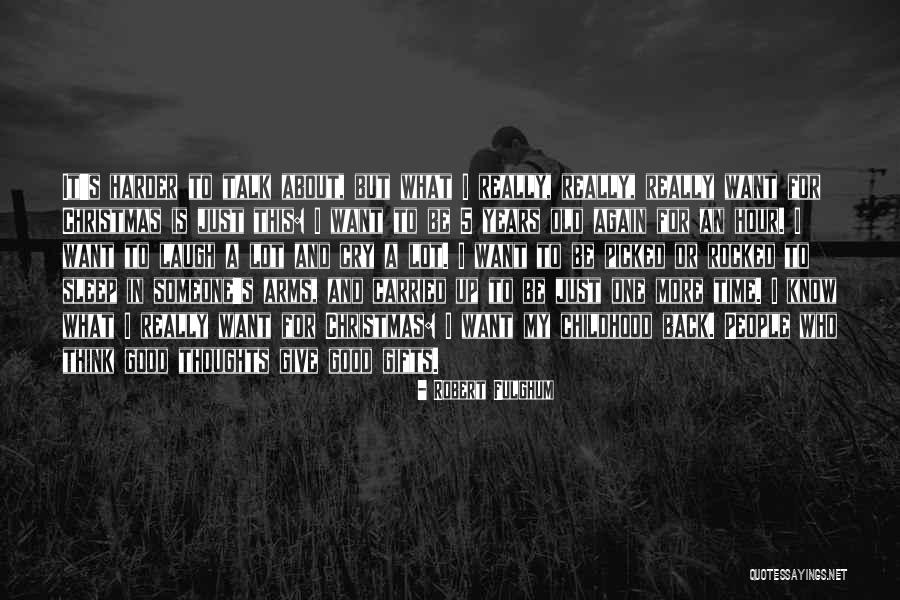
It's harder to talk about, but what I really, really, really want for Christmas is just this: I want to be 5 years old again for an hour. I want to laugh a lot and cry a lot. I want to be picked or rocked to sleep in someone's arms, and carried up to be just one more time. I know what I really want for Christmas: I want my childhood back. People who think good thoughts give good gifts. — Robert Fulghum
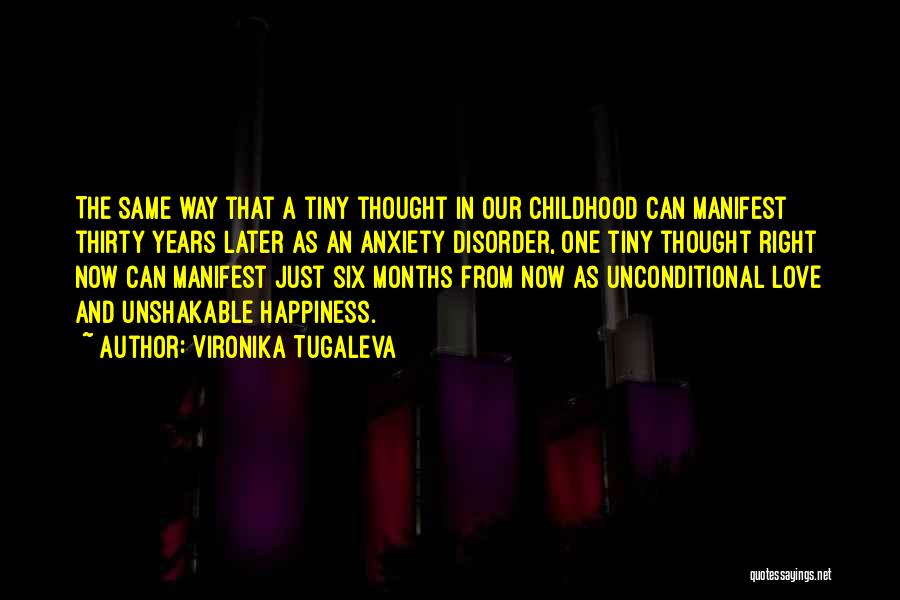
The same way that a tiny thought in our childhood can manifest thirty years later as an anxiety disorder, one tiny thought right now can manifest just six months from now as unconditional love and unshakable happiness. — Vironika Tugaleva
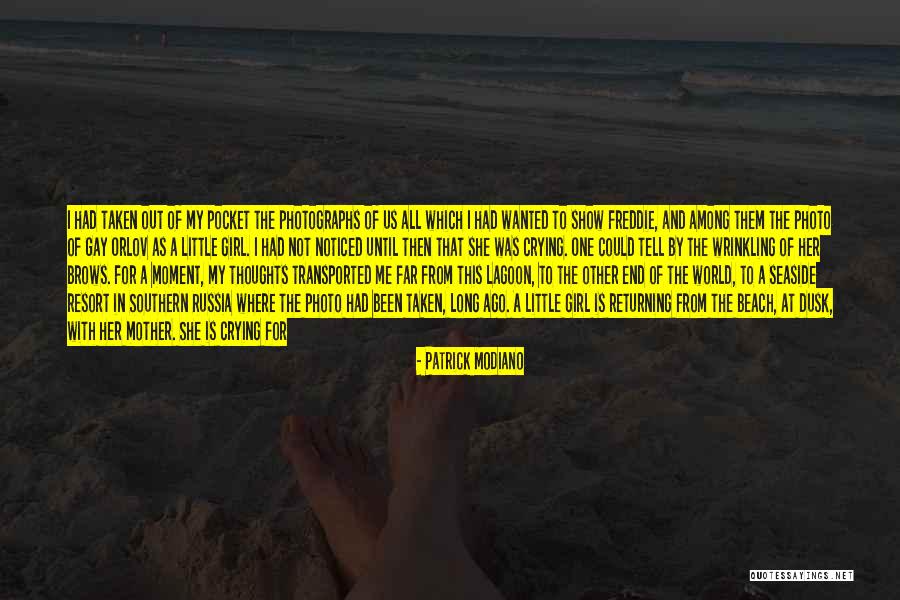
I had taken out of my pocket the photographs of us all which I had wanted to show Freddie, and among them the photo of Gay Orlov as a little girl. I had not noticed until then that she was crying. One could tell by the wrinkling of her brows. For a moment, my thoughts transported me far from this lagoon, to the other end of the world, to a seaside resort in Southern Russia where the photo had been taken, long ago. A little girl is returning from the beach, at dusk, with her mother. She is crying for no reason at all, because she would have liked to continue playing. She moves off into the distance. She has already turned the corner of the street, and do not our lives dissolve into the evening as quickly as this grief of childhood? — Patrick Modiano
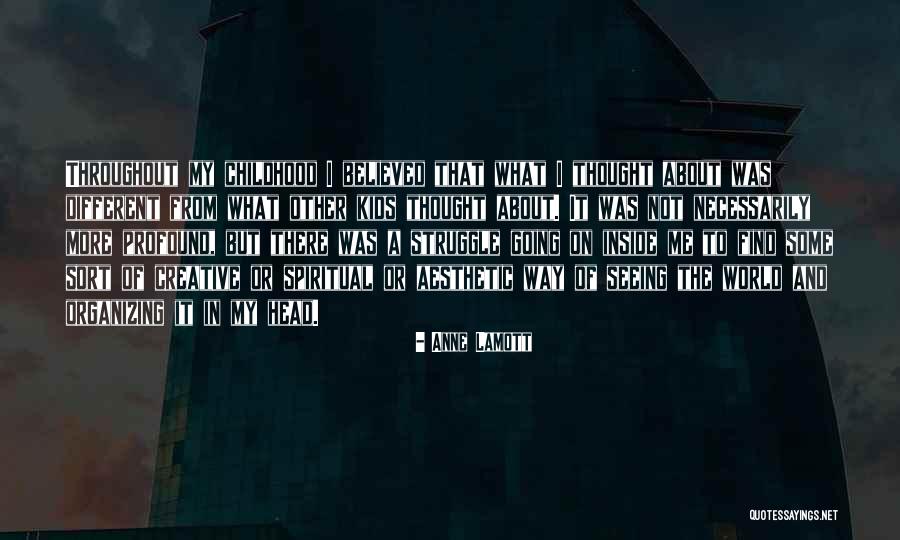
Throughout my childhood I believed that what I thought about was different from what other kids thought about. It was not necessarily more profound, but there was a struggle going on inside me to find some sort of creative or spiritual or aesthetic way of seeing the world and organizing it in my head. — Anne Lamott
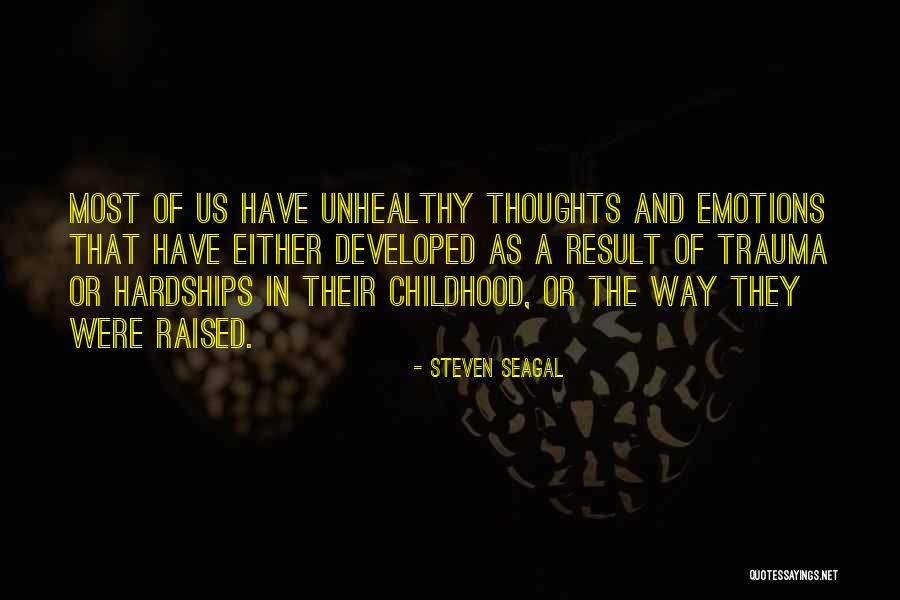
Most of us have unhealthy thoughts and emotions that have either developed as a result of trauma or hardships in their childhood, or the way they were raised. — Steven Seagal
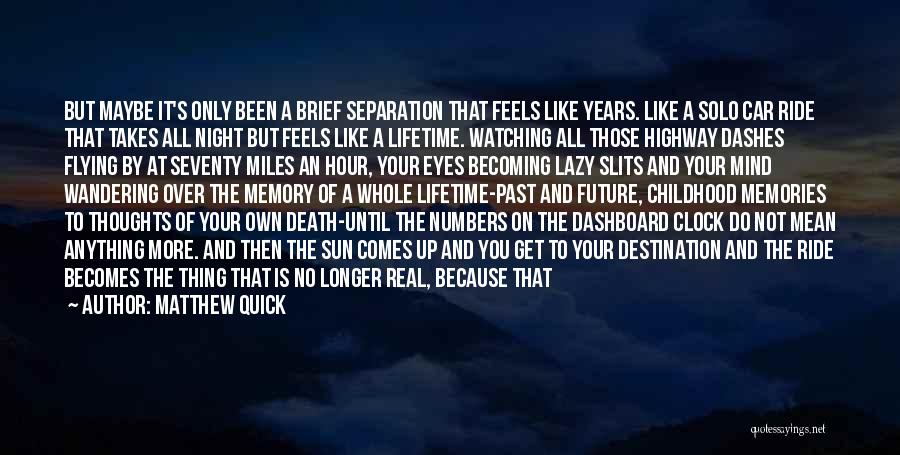
But maybe it's only been a brief separation that feels like years. Like a solo car ride that takes all night but feels like a lifetime. Watching all those highway dashes flying by at seventy miles an hour, your eyes becoming lazy slits and your mind wandering over the memory of a whole lifetime-past and future, childhood memories to thoughts of your own death-until the numbers on the dashboard clock do not mean anything more. And then the sun comes up and you get to your destination and the ride becomes the thing that is no longer real, because that surreal feeling has vanished and time has become meaningful again. — Matthew Quick
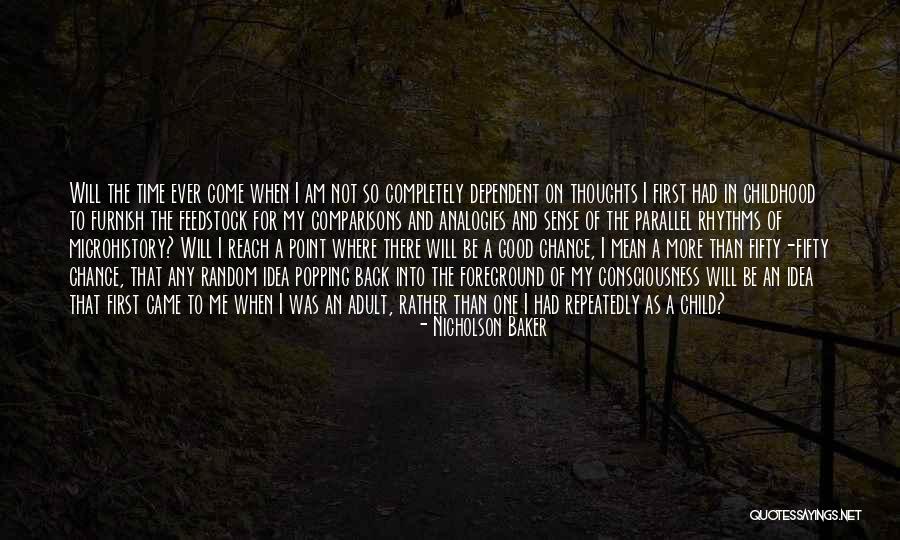
Will the time ever come when I am not so completely dependent on thoughts I first had in childhood to furnish the feedstock for my comparisons and analogies and sense of the parallel rhythms of microhistory? Will I reach a point where there will be a good chance, I mean a more than fifty-fifty chance, that any random idea popping back into the foreground of my consciousness will be an idea that first came to me when I was an adult, rather than one I had repeatedly as a child? — Nicholson Baker
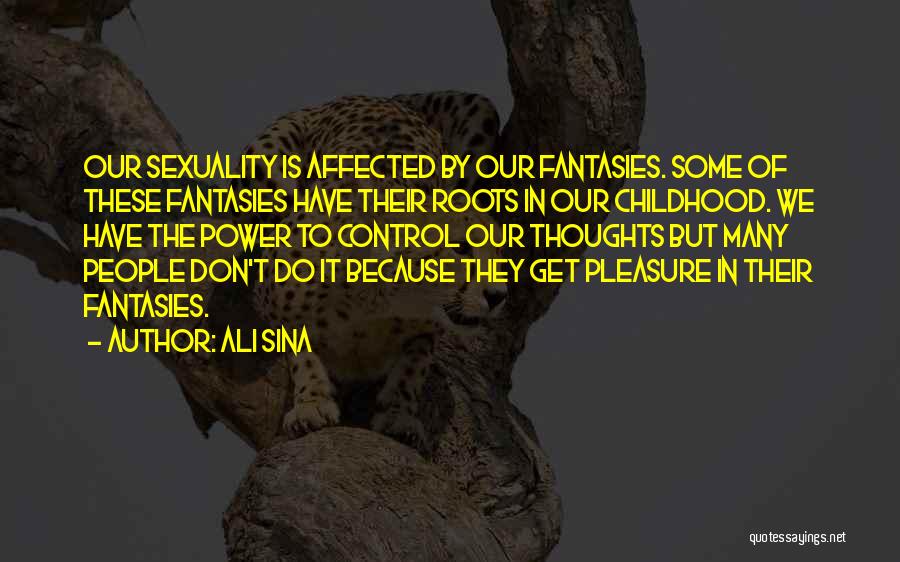
Our sexuality is affected by our fantasies. Some of these fantasies have their roots in our childhood. We have the power to control our thoughts but many people don't do it because they get pleasure in their fantasies. — Ali Sina
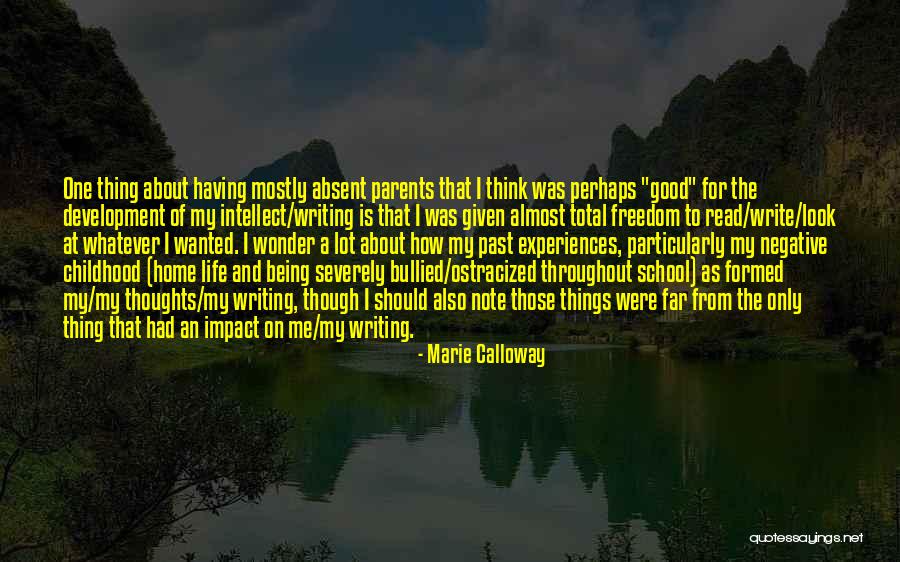
One thing about having mostly absent parents that I think was perhaps "good" for the development of my intellect/writing is that I was given almost total freedom to read/write/look at whatever I wanted. I wonder a lot about how my past experiences, particularly my negative childhood (home life and being severely bullied/ostracized throughout school) as formed my/my thoughts/my writing, though I should also note those things were far from the only thing that had an impact on me/my writing. — Marie Calloway
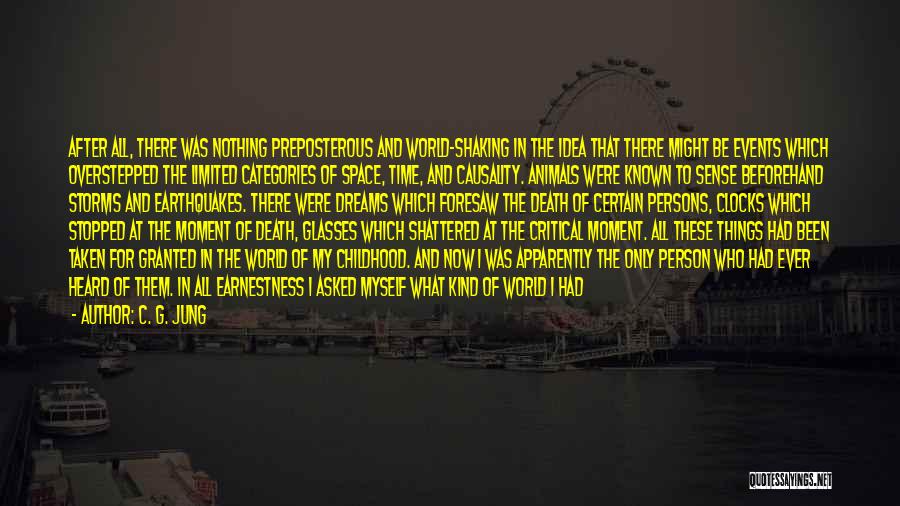
After all, there was nothing preposterous and world-shaking in the idea that there might be events which overstepped the limited categories of space, time, and causality. Animals were known to sense beforehand storms and earthquakes. There were dreams which foresaw the death of certain persons, clocks which stopped at the moment of death, glasses which shattered at the critical moment. All these things had been taken for granted in the world of my childhood. And now I was apparently the only person who had ever heard of them. In all earnestness I asked myself what kind of world I had stumbled into. Plainly, the urban world knew nothing about the country world, the real world of mountains, woods and rivers, of animals and 'God's thoughts' (plants and crystals). I found this explanation comforting. At all events, it bolstered my self-esteem. — C. G. Jung
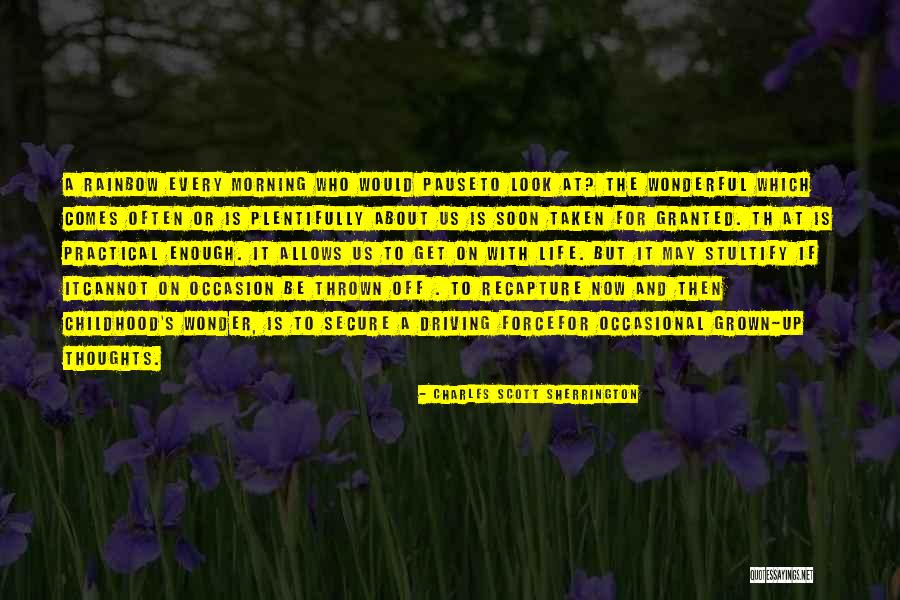
A rainbow every morning who would pause
to look at? The wonderful which comes often or is plentifully about us is soon taken for granted. Th at is practical enough. It allows us to get on with life. But it may stultify if it
cannot on occasion be thrown off . To recapture now and then childhood's wonder, is to secure a driving force
for occasional grown-up thoughts. — Charles Scott Sherrington
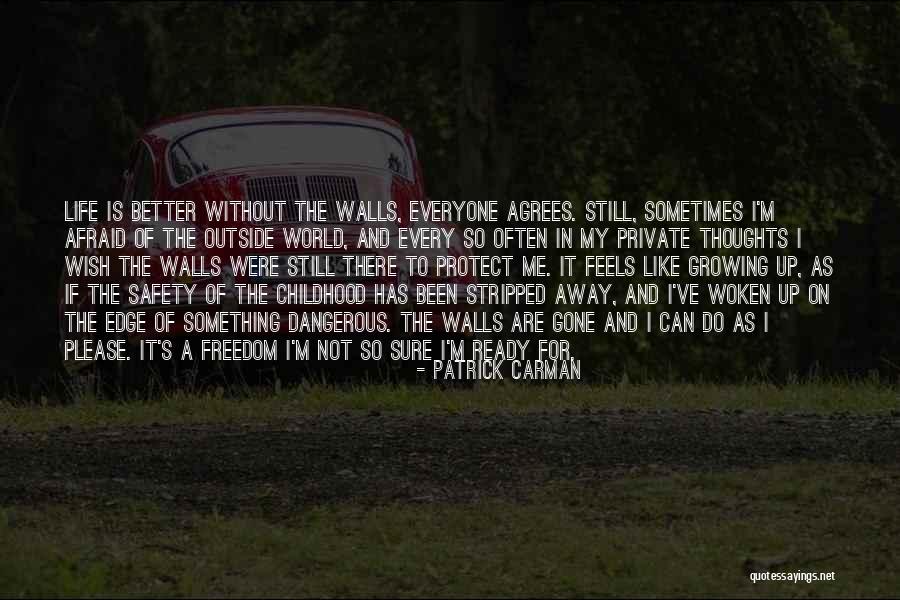
Life is better without the walls, everyone agrees. Still, sometimes I'm afraid of the outside world, and every so often in my private thoughts I wish the walls were still there to protect me. It feels like growing up, as if the safety of the childhood has been stripped away, and I've woken up on the edge of something dangerous. The walls are gone and I can do as I please. It's a freedom I'm not so sure I'm ready for. — Patrick Carman
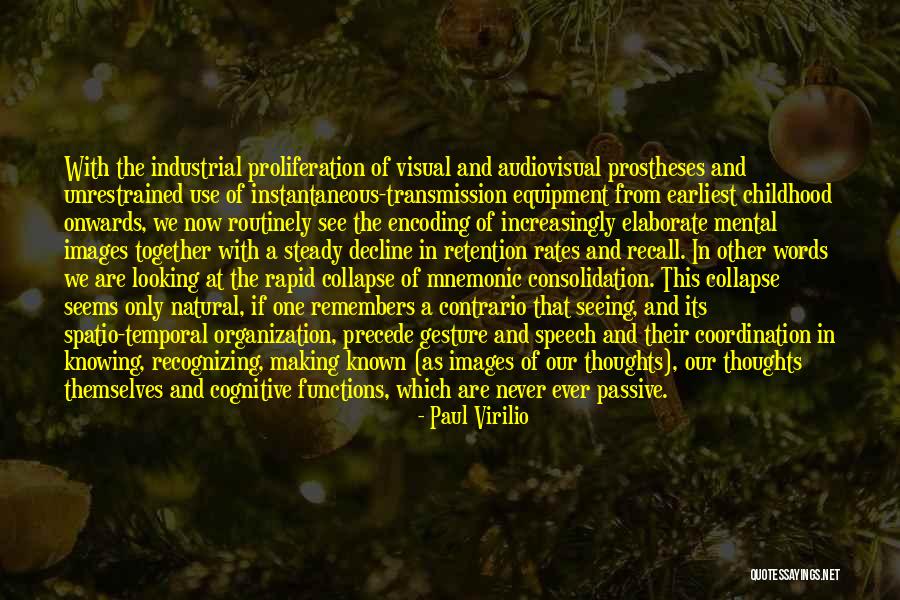
With the industrial proliferation of visual and audiovisual prostheses and unrestrained use of instantaneous-transmission equipment from earliest childhood onwards, we now routinely see the encoding of increasingly elaborate mental images together with a steady decline in retention rates and recall. In other words we are looking at the rapid collapse of mnemonic consolidation. This collapse seems only natural, if one remembers a contrario that seeing, and its spatio-temporal organization, precede gesture and speech and their coordination in knowing, recognizing, making known (as images of our thoughts), our thoughts themselves and cognitive functions, which are never ever passive. — Paul Virilio
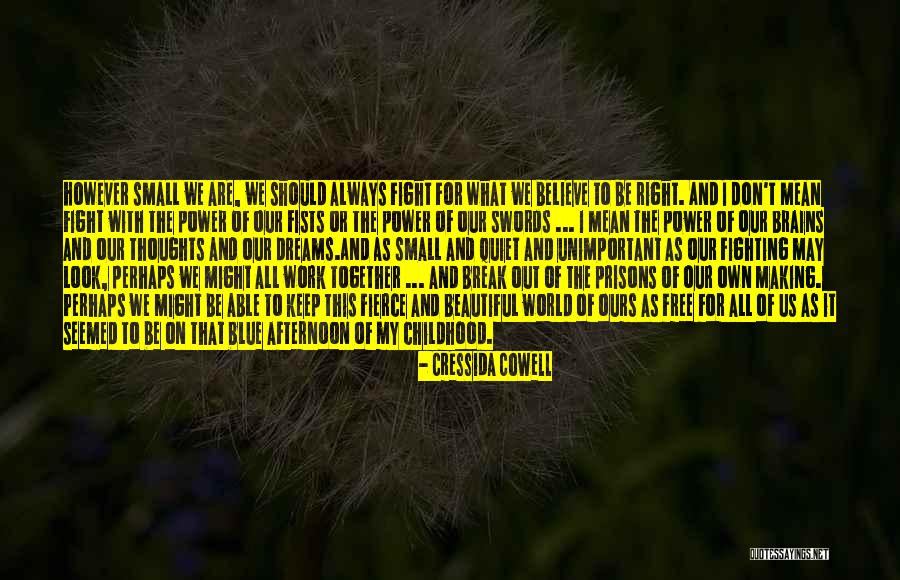
However small we are, we should always fight for what we believe to be right. And I don't mean fight with the power of our fists or the power of our swords ... I mean the power of our brains and our thoughts and our dreams.
And as small and quiet and unimportant as our fighting may look, perhaps we might all work together ... and break out of the prisons of our own making. Perhaps we might be able to keep this fierce and beautiful world of ours as free for all of us as it seemed to be on that blue afternoon of my childhood. — Cressida Cowell
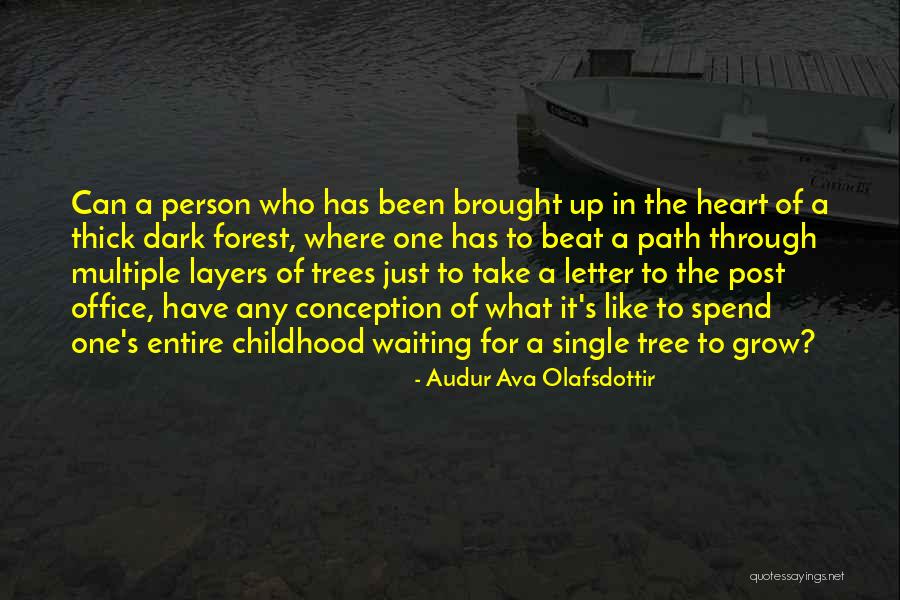
Can a person who has been brought up in the heart of a thick dark forest, where one has to beat a path through multiple layers of trees just to take a letter to the post office, have any conception of what it's like to spend one's entire childhood waiting for a single tree to grow? — Audur Ava Olafsdottir
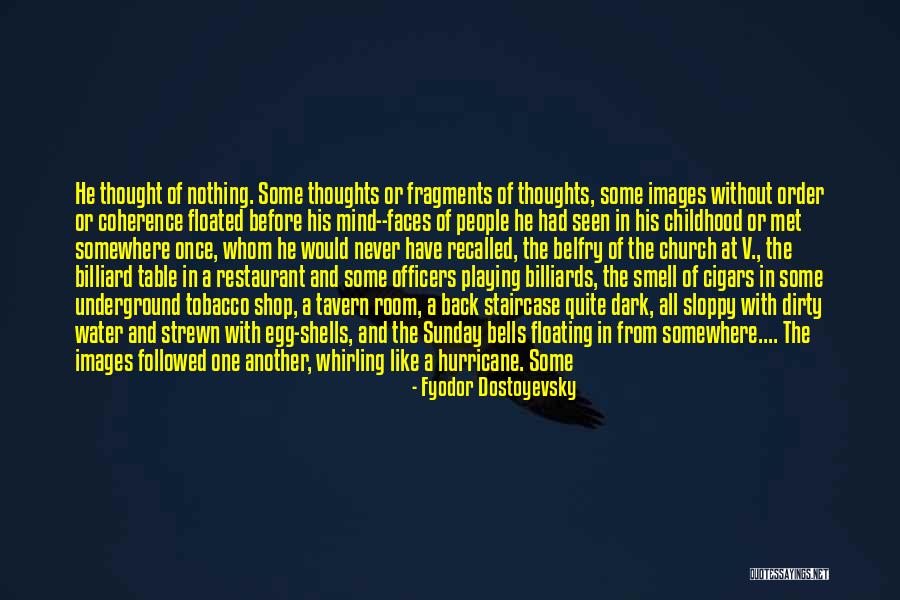
He thought of nothing. Some thoughts or fragments of thoughts, some images without order or coherence floated before his mind--faces of people he had seen in his childhood or met somewhere once, whom he would never have recalled, the belfry of the church at V., the billiard table in a restaurant and some officers playing billiards, the smell of cigars in some underground tobacco shop, a tavern room, a back staircase quite dark, all sloppy with dirty water and strewn with egg-shells, and the Sunday bells floating in from somewhere.... The images followed one another, whirling like a hurricane. Some of them he liked and tried to clutch at, but they faded and all the while there was an oppression within him, but it was not overwhelming, sometimes it was even pleasant.... The slight shivering still persisted, but that too was an almost pleasant sensation. — Fyodor Dostoyevsky
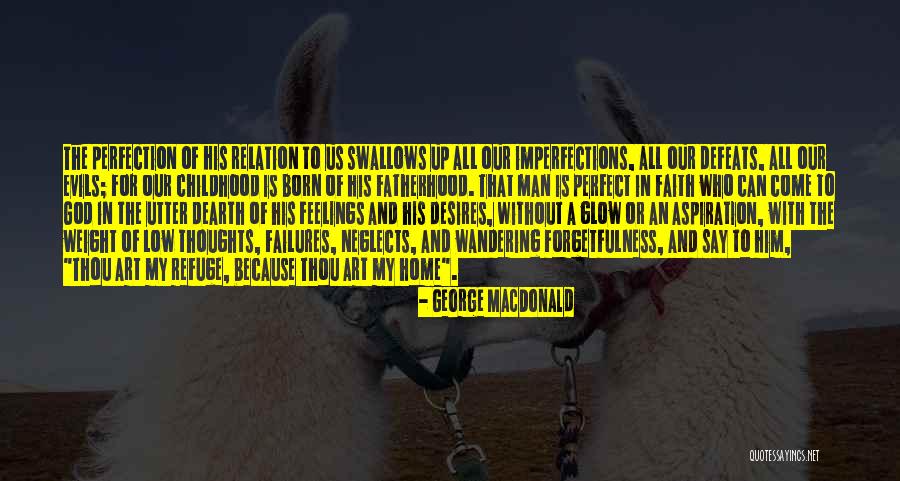
The perfection of His relation to us swallows up all our imperfections, all our defeats, all our evils; for our childhood is born of His fatherhood. That man is perfect in faith who can come to God in the utter dearth of his feelings and his desires, without a glow or an aspiration, with the weight of low thoughts, failures, neglects, and wandering forgetfulness, and say to Him, "Thou art my refuge, because Thou art my home". — George MacDonald
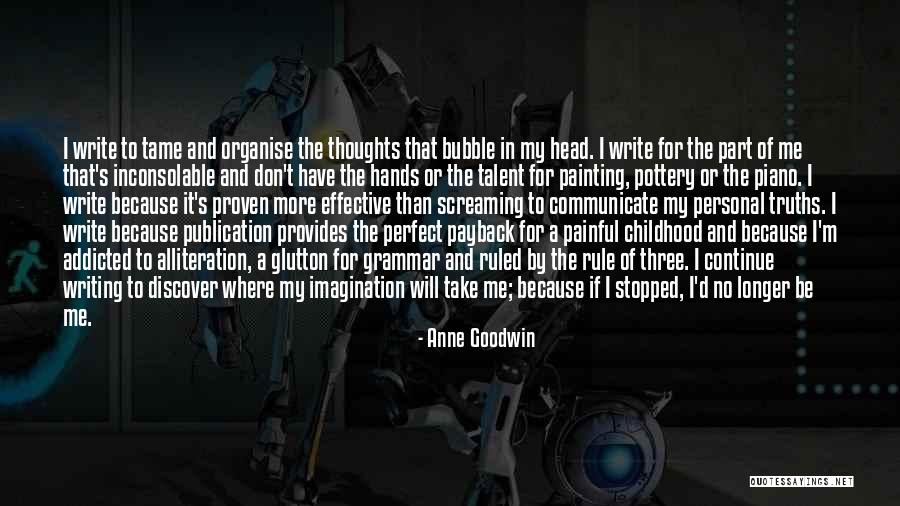
I write to tame and organise the thoughts that bubble in my head. I write for the part of me that's inconsolable and don't have the hands or the talent for painting, pottery or the piano. I write because it's proven more effective than screaming to communicate my personal truths. I write because publication provides the perfect payback for a painful childhood and because I'm addicted to alliteration, a glutton for grammar and ruled by the rule of three. I continue writing to discover where my imagination will take me; because if I stopped, I'd no longer be me. — Anne Goodwin
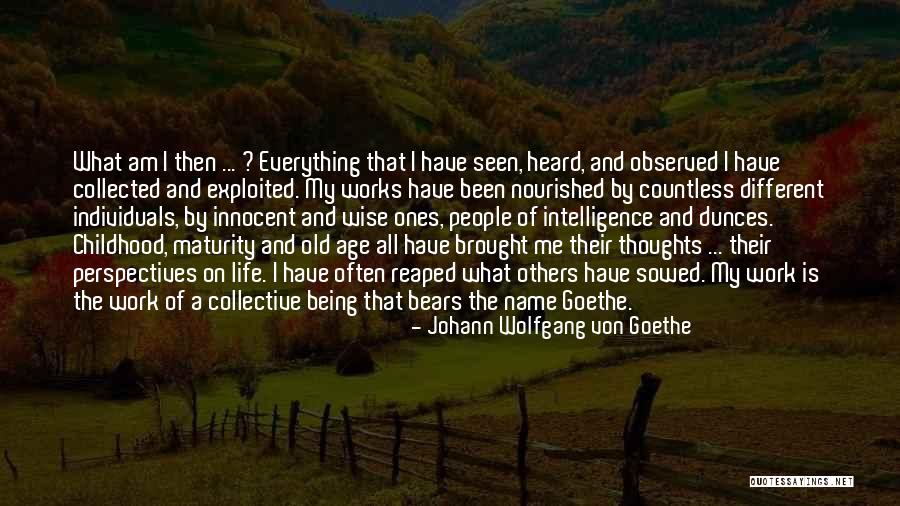
What am I then ... ? Everything that I have seen, heard, and observed I have collected and exploited. My works have been nourished by countless different individuals, by innocent and wise ones, people of intelligence and dunces. Childhood, maturity and old age all have brought me their thoughts ... their perspectives on life. I have often reaped what others have sowed. My work is the work of a collective being that bears the name Goethe. — Johann Wolfgang Von Goethe
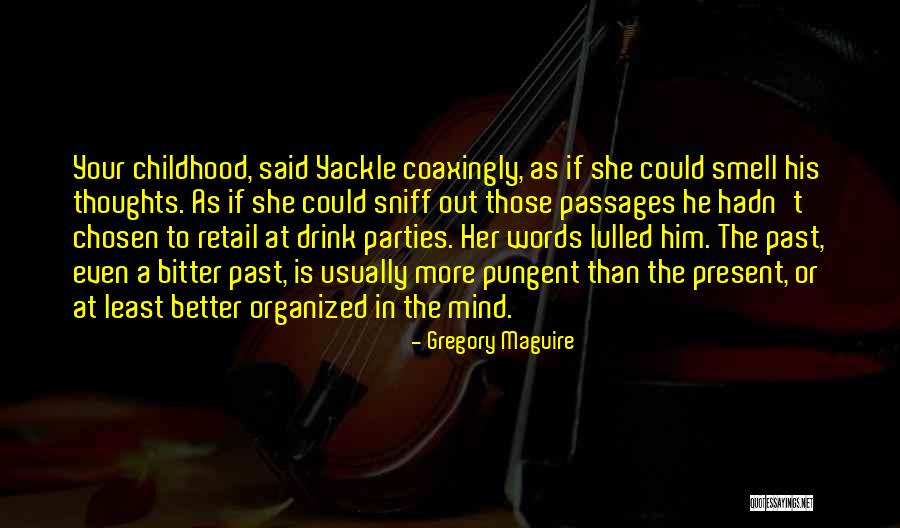
Your childhood, said Yackle coaxingly, as if she could smell his thoughts. As if she could sniff out those passages he hadn't chosen to retail at drink parties.
Her words lulled him. The past, even a bitter past, is usually more pungent than the present, or at least better organized in the mind. — Gregory Maguire
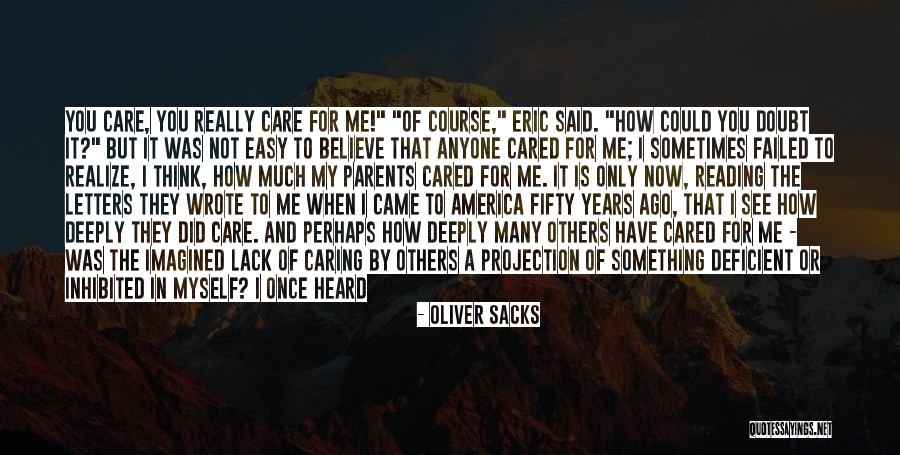
You care, you really care for me!" "Of course," Eric said. "How could you doubt it?" But it was not easy to believe that anyone cared for me; I sometimes failed to realize, I think, how much my parents cared for me. It is only now, reading the letters they wrote to me when I came to America fifty years ago, that I see how deeply they did care. And perhaps how deeply many others have cared for me - was the imagined lack of caring by others a projection of something deficient or inhibited in myself? I once heard a radio program devoted to the memories and thoughts of those who, like me, had been evacuated during the Second World War, separated from their families during their earliest years. The interviewer commented on how well these people had adjusted to the painful, traumatic years of their childhood. "Yes," said one man. "But I still have trouble with the three Bs: bonding, belonging, and believing." I think this is also true, to some extent, for me. — Oliver Sacks
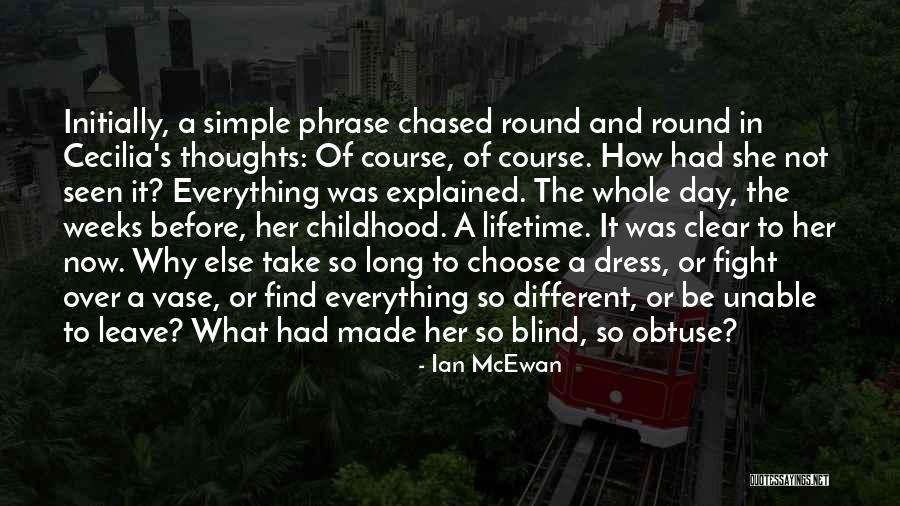
Initially, a simple phrase chased round and round in Cecilia's thoughts: Of course, of course. How had she not seen it? Everything was explained. The whole day, the weeks before, her childhood. A lifetime. It was clear to her now. Why else take so long to choose a dress, or fight over a vase, or find everything so different, or be unable to leave? What had made her so blind, so obtuse? — Ian McEwan





